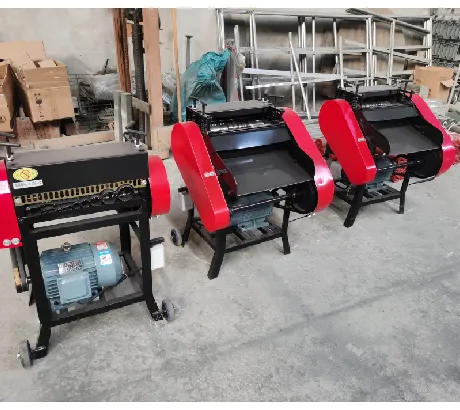

Nov. . 20, 2024 04:16 Back to list
The Importance of Aluminum Scrap Recycling Plants
Aluminum, a lightweight and versatile metal, is integral to many industries, from aerospace to automotive manufacturing. With the increasing demand for aluminum products, the recycling of aluminum scrap has become essential for sustainable development. Aluminum scrap recycling plants play a crucial role in this process, significantly impacting both the economy and the environment.
Understanding Aluminum Scrap
Aluminum scrap primarily consists of post-consumer waste, including used cans, window frames, and other aluminum products that have reached the end of their life cycle. In addition to post-consumer scrap, industrial scrap generated during manufacturing processes also contributes to aluminum recycling. The properties of aluminum make it highly recyclable; it can be recycled without losing quality, which means that recycled aluminum can be used to produce new products.
Benefits of Recycling Aluminum Scrap
1. Environmental Impact Recycling aluminum scrap conserves natural resources, reduces landfill waste, and decreases greenhouse gas emissions. The production of recycled aluminum uses about 95% less energy compared to producing new aluminum from bauxite ore. This energy savings translates to a reduction in carbon footprint, helping to combat climate change.
2. Resource Conservation Aluminum is a finite resource; therefore, recycling is vital to maintaining availability. Recycling plants collect and process aluminum scrap, ensuring that this valuable material is reused rather than thrown away. This not only conserves aluminum reserves but also reduces the need for mining, which is often harmful to the environment.
3. Economic Benefits Aluminum recycling plants contribute to the economy by creating jobs in the recycling and manufacturing sectors. They provide employment opportunities for laborers, technicians, and engineers, thus supporting local economies. Additionally, recycling aluminum is often less expensive than extracting and refining new aluminum, resulting in cost savings for manufacturers.
4. Reduction of Waste With the global population increasing, waste management is becoming increasingly critical. Aluminum scrap recycling plants help mitigate the waste crisis by diverting aluminum from landfills. By processing these materials, recycling plants reduce the volume of waste that contributes to environmental degradation.

The Process of Aluminum Recycling
The recycling process at an aluminum scrap recycling plant involves several steps, beginning with the collection of scrap aluminum. Once the material is gathered, it is sorted and cleaned to remove any contaminants, such as paper, glass, or other metals. The cleaned aluminum scrap is then shredded into small pieces to facilitate melting.
Next, the shredded aluminum is melted in large furnaces, where it reaches temperatures of around 660 degrees Celsius. Once melted, the aluminum can be cast into new shapes or ingots, ready for manufacturing into new products. This process is efficient and allows for continuous recycling, as reclaimed aluminum can be reused multiple times without degradation of its properties.
Technological Advancements in Recycling
Modern aluminum recycling plants utilize advanced technologies to enhance efficiency and maximize recovery rates. Automated sorting systems equipped with sensors can accurately separate aluminum from other materials, reducing contamination and ensuring high-quality outputs. Additionally, innovations in melting technologies enable energy-efficient processes that minimize energy consumption during recycling.
As the global emphasis on sustainable practices grows, aluminum scrap recycling plants are increasingly adopting eco-friendly technologies. These include the use of renewable energy sources and the implementation of efficient waste treatment systems that minimize emissions and environmental impact.
Conclusion
Aluminum scrap recycling plants are vital stewards of natural resources and environmental sustainability. By recycling aluminum, we not only conserve energy and reduce greenhouse gas emissions but also promote economic growth and create jobs. As our world continues to grapple with resource depletion and environmental degradation, the role of aluminum recycling becomes ever more critical. Investing in these plants, utilizing advanced technologies, and promoting a culture of recycling are essential steps toward a more sustainable future.
Latest news
Troubleshooting Common Eddy Separator Problems
NewsJul.04,2025
The Role of Metal Recycling Plants in Circular Economy
NewsJul.04,2025
The Impact of Recycling Line Pickers on Waste Management Costs
NewsJul.04,2025
Safety Features Every Metal Shredder Should Have
NewsJul.04,2025
How Industrial Shredders Improve Waste Management Systems
NewsJul.04,2025
How Cable Granulators Contribute to Sustainable Recycling
NewsJul.04,2025